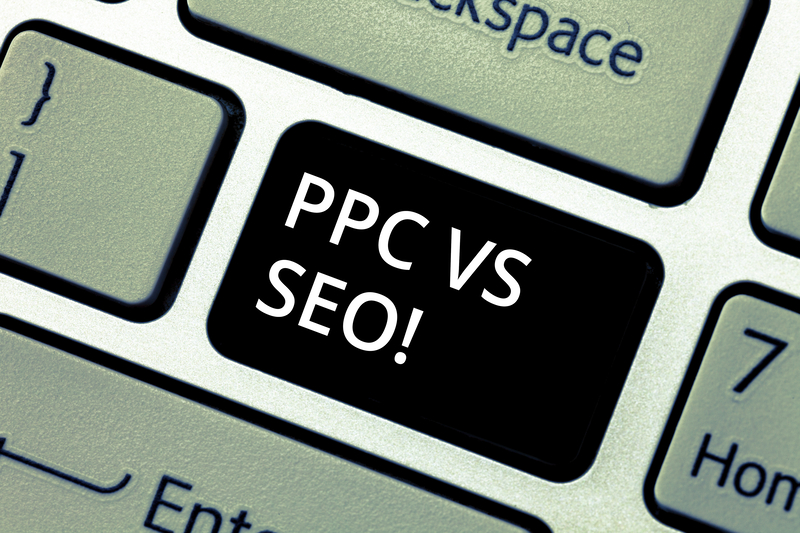
How to Prevent PPC from Cannibalizing Your SEO Efforts
Pay-per-click (PPC) advertising and search engine optimization (SEO) are both powerful digital marketing strategies, but if not managed properly, PPC can end up cannibalizing your organic traffic. This happens when paid ads attract clicks that would have otherwise gone to your organic search results, leading to unnecessary ad spend and lower ROI.
Here’s an in-depth guide to preventing PPC from cannibalizing your SEO efforts.
1. Analyse Your Current Search Performance
Before making any changes, conduct a thorough analysis of how your PPC and SEO campaigns are performing together.
- Check keyword overlap: Identify if your paid keywords are already ranking well organically.
- Monitor CTR (Click-Through Rate) and conversion rates: Compare paid and organic click rates to understand user behaviour.
- Use Google Search Console & Google Ads reports: Find out which queries generate both organic and paid traffic.
- Evaluate cost-per-click (CPC) vs. organic ranking benefits: If you rank in the top three organically, PPC might not be necessary for that keyword.
2. Adjust Your PPC Bidding Strategy
If your brand ranks well organically, overbidding on PPC can result in unnecessary ad spend.
- Lower bids for high-ranking organic keywords: Reduce spend on queries where you already dominate the SERPs.
- Use bid modifiers: Adjust bids based on location, time of day, and audience segments to improve efficiency.
- Pause ads for organically strong pages: Test whether pausing PPC campaigns for specific high-ranking keywords impacts traffic and conversions.
3. Target Different Keywords for PPC and SEO
Avoid bidding on keywords where you already rank at the top organically. Instead, use PPC to target complementary queries.
- Use PPC for competitive, high-intent keywords: Focus on commercial terms where organic competition is strong.
- Target long-tail keywords in SEO: These often convert well and can bring in cost-effective traffic.
- Leverage PPC for non-ranking keywords: If a keyword is difficult to rank for, PPC can help capture traffic while SEO efforts improve rankings.
4. Optimise for Branded Search Terms Wisely
Many businesses run PPC campaigns on their own brand name, but this can sometimes be wasteful.
- Check if competitors are bidding on your brand name: If they are, you may need to maintain PPC ads to defend your brand presence.
- A/B test running and pausing branded PPC campaigns: Monitor whether turning off branded PPC significantly impacts total traffic and conversions.
- Optimise meta titles and descriptions for CTR: Make your organic search listings as compelling as possible to reduce reliance on branded PPC.
5. Align Landing Pages with Search Intent
Make sure your PPC and SEO strategies complement each other rather than compete.
- Use separate landing pages for PPC and SEO when needed: This allows you to optimise each for different user intents.
- Ensure consistent messaging: Your PPC ads and organic results should align in messaging and branding.
- Improve site speed and user experience: A seamless UX increases conversions from both organic and paid traffic.
6. Leverage Remarketing Instead of Competing for Clicks
Instead of using PPC to attract users who would have clicked organically, use remarketing to re-engage visitors who didn’t convert.
- Set up remarketing lists: Retarget users based on page visits, actions taken, or time spent on site.
- Use dynamic ads: Show personalised content based on user interactions with your site.
- Focus on high-intent audiences: Bid more aggressively on users who have previously engaged with your brand.
7. Utilise Negative Keywords Effectively
To prevent wasted ad spend, make sure to exclude keywords where organic traffic already performs well.
- Add negative keywords for high-performing organic queries: Prevent your ads from showing for these searches.
- Exclude navigational queries where organic results suffice: If users are just looking for your homepage, PPC isn’t necessary.
- Refine match types: Use exact and phrase match keywords to prevent broad match ads from competing with organic results.
8. Measure & Continuously Optimise Your Strategy
Regularly review the interaction between PPC and SEO to ensure they are working together.
- Use Google Analytics & Google Ads reports: Track how paid and organic clicks interact.
- Monitor conversion paths: See if users first click an ad but return later via organic search.
- A/B test different bidding strategies: Experiment with bid adjustments to find the optimal balance.
Final Thoughts
PPC and SEO should complement each other rather than compete. By carefully analysing keyword overlap, adjusting bidding strategies, and aligning landing pages, you can maximise your overall search performance while minimising wasted ad spend. Regular monitoring and testing are crucial to maintaining the right balance between paid and organic search traffic.
Would you like assistance with specific PPC and SEO data analysis or a customised strategy for your website? Contact Us.
